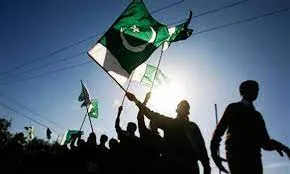In the ever-complicated theatre of Pakistani politics, what often appears as power is merely a projection a carefully constructed illusion obscured by smoke, protected by screens, and occasionally pierced by sarcasm. This article explores the various facets of this illusion under distinct themes. Pakistan, on paper, is a democratic republic with elected representatives and parliamentary sovereignty. Yet, in practice, the military has historically played a decisive often dominant role in national affairs. Civilian leaders may wear the crown, but rarely do they wield the real scepter. From Zulfikar Ali Bhutto to Imran Khan, many have risen on waves of public support only to find themselves swept aside when they crossed invisible red lines.
Power here is Performative Civilians govern, but generals decide. Policy, especially on defense, foreign affairs (notably India, Afghanistan, and the U.S.), and nuclear doctrine, often lies beyond the reach of parliament. Once dubbed the fourth pillar of the state, Pakistani media has increasingly become a fog Machine a tool used not to inform, but to confuse. While independent journalism does exist, it is often muzzled by pressure, censorship, and coerced self-restraint. Popular TV anchors flip narratives like channels, and newspapers toe the line drawn by unseen hands.
The illusion of a free press is maintained by allowing carefully curated dissent a controlled burn that creates just enough smoke to obscure the strings being pulled in the background. Dissenting voices are silenced not just through bans, but through digital harassment, character assassination, and economic strangulation. The courts in Pakistan have oscillated between resistance and submission. At times, they’ve bravely pushed back against executive overreach. At others, they’ve rubber-stamped military coups and legitimized authoritarian regimes (notably through the infamous “doctrine of necessity”).
In recent years, judicial activism has given the impression of accountability. High-profile convictions and disqualifications dominate headlines. Yet, these actions often mirror the political winds targeting some while sparing others. Justice, when selective, becomes a screen behind which realpolitik is played out.
Pakistanis are no strangers to the contradictions they live with. Street vendors mock inflation with jokes, students use memes to digest repression, and talk shows ooze sarcasm as a coping mechanism. Sarcasm has become a cultural armor a way to survive disillusionment with institutions.
Social media, despite attempts to muzzle it, has democratized cynicism. It exposes hypocrisy, highlights absurdities, and occasionally forces accountability but it also reflects a populace that laughs not because things are funny, but because they are too broken to fix.IMF and Illusions of Sovereignty.Pakistan’s economy is increasingly dictated by external creditors. Each IMF bailout, each Saudi deposit, or Chinese loan comes with strings that undermine local autonomy. Leaders boast of economic reforms while negotiating terms behind closed doors that will impact generations.
The illusion here is sovereignty a narrative maintained for domestic consumption while real decisions are made in Washington, Riyadh, or Beijing. The national budget is less a product of vision and more a ledger of obligations.Religion has often been co-opted into the power matrix sometimes as a sword, sometimes as a shield. Religious parties, though electorally weak, hold sway on the streets. The state uses faith to bolster legitimacy but is also held hostage by it.
Blasphemy laws, for example, are used not just to defend faith but to silence dissent, intimidate minorities, and settle personal vendettas. Here, the illusion is moral authority wielded selectively, and often hypocritically.In Pakistan, power is a puzzle of shifting pieces military, judiciary, bureaucracy, media, clerics, and foreign partners all hold pieces of the board. Civilian governments, often the most visible piece, are ironically the most disposable.
True power lies not in the ballot but in the backroom, not in parliament but in Plan B, C, and D. This structure of power thrives on uncertainty it survives through controlled chaos.Pakistan stands at a crossroads again. The illusion of power cannot be sustained forever. Citizens are increasingly demanding transparency, accountability, and genuine representation. The sarcasm of the masses may one day give way to serious resistance.Until then, Pakistan remains a nation caught in the theatre of smoke, screen, and sarcasm watching the illusion of power perform its most convincing trick yet: making truth disappear.


